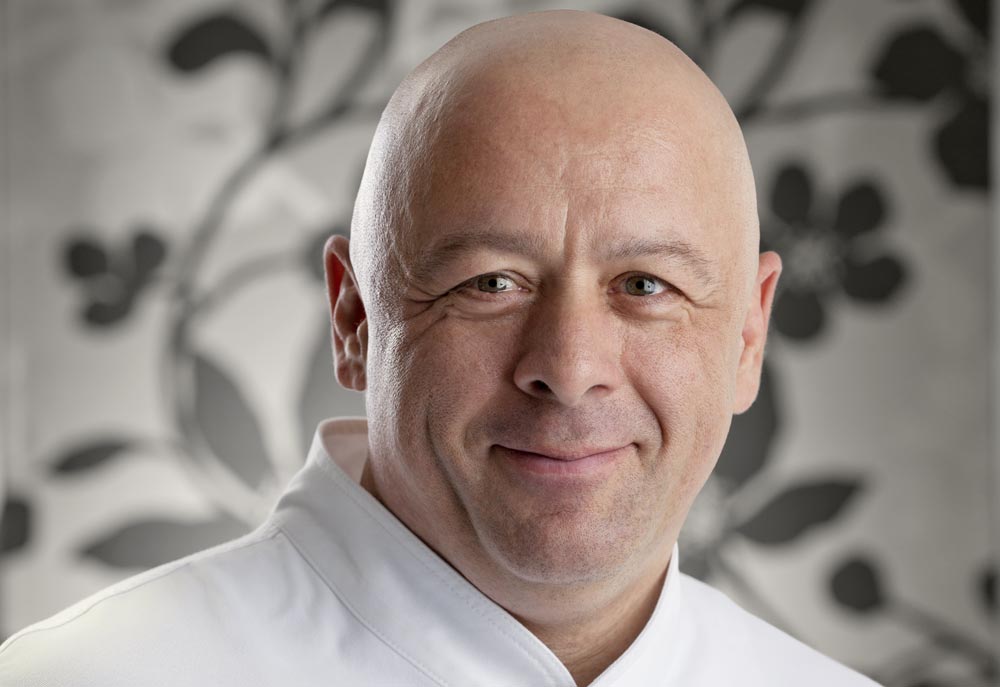 Marx prefers humble ingredients and creativity to produce dishes over premium food with little flair.
Marx prefers humble ingredients and creativity to produce dishes over premium food with little flair.
What has been the highlight of your career?
There have been a few. The ones that spring to mind are obtaining two Michelin stars during my two years at Relais Chateau Cordeillan Bages and being awarded two Michelin stars within five months of the opeing of Sur Mesure restaurant, at the Mandarin Oriental Paris.
Alongside this has been the educational side, including developing an R&D lab related to modern gastronomy; the creation of an F&B consultancy dedicated to concepts, services and culinary products.
I have also deeply enjoyed involvement in the development of Village de Bages in the biggest Bordelais vineyard in 2004 (café Lavinal, Au Baba d’Andrea, Bages’ Bazaar) and the development of two Japanese restaurants in Paris and one in London.
Which cuisine do you love to cook at the moment?
The cuisine that currently interests me the most is the cuisine “plaisir” (pleasure) the one that provokes emotions when tasting it but also the cuisine “bien-être” (wellbeing), the one from which you feel a sense of wellbeing at the end of the meal.
What are your top ingredients to work with?

| Advertisement |
Those that bring added value interest me a lot at the minute such as all vegetables in general and also small fish like sardine – affordable products, but products for which creativity will need to express itself in order to bring an original proposition and proposition of quality, as opposed to noble products that offer less freedom in the kitchen. I don’t like premium ingredients piled high on the same plate.
Why use a mineral water in cooking? What’s wrong with tap water?
Badoit water has natural attributes that are very interesting: The calcium and the natural bicarbonate. These elements enable me to reduce cooking time of the vegetables and thus the energy consumption but they also allow me to reduce taste deterioration as well as natural colours fading during cooking. When integrated in a beignets paste or in a mayonnaise you will obtain a lighter mix with more air inside.
Today, it is enough to integrate the costs of a raw material like water as an ingredient in a recipe in order to valorise it. At the same level as an oil of great quality or a prestigious wine in a sauce reduction.
What is the biggest challenge for chefs today and why?
To keep an open mind and have the capability to renew oneself. It is a difficult task that calls for a lot of work and investment, especially today, when we are facing a higher pace of demand, and increased competition worldwide but also “zapper customers”.
What do you aspire to?
My aspiration would be not to create conflicts between tradition and innovation. It allows seeing what has been and what will continue to be. Cuisine goes through cycles of creativity and the “Lièvre à la Royale”, for instance, has been an innovation at one point in time but not anymore. By taking this position, one comes to the conclusion that there is no illegitimate cuisine.
What’s been the most valuable lesson you’ve learnt in your career?
When I first met a master of classical Kaiseki Japanese cuisine, I learnt that one will need to integrate humility. The role of a cook is to bring comfort in tasting the product while respecting its original quality of taste and always staying as close as possible to the product. Another important lesson has been to understand that the universe of a chef has an intimate relation with the cuisine he will serve.








 Search our database of more than 2,700 industry companies
Search our database of more than 2,700 industry companies









